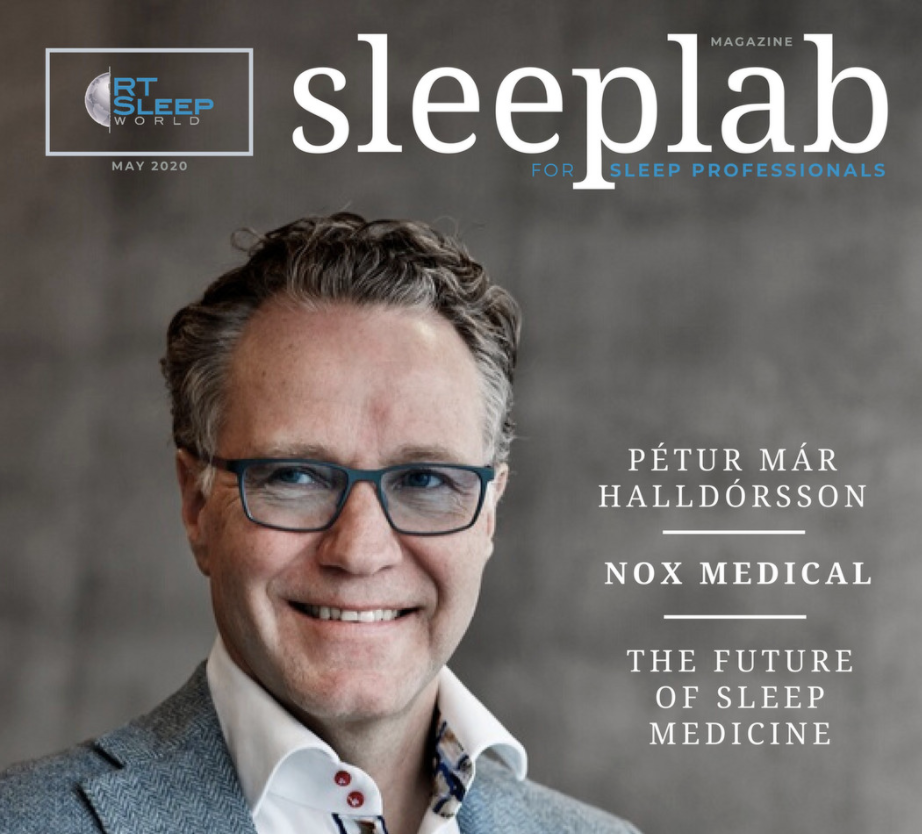Earlier this year, Nox Medical launched its innovative polysomnographic system, The Nox A1 PSG System in the United States and Canada. In their Sleeplab Magazine May issue, RT SleepWorld covers the product launch and interviews Pétur Már Halldórsson, CEO of Nox Medical on the future of sleep medicine.
In the interview, Halldórsson describes how the Nox A1 was built upon the earlier success of the Nox T3, a home sleep testing device that has been distributed and sold in over 20,000 units worldwide. He explains the key features and benefits of the Nox A1 as a multifunctional and wireless PSG System.
“Seamless home testing has been difficult, if not impossible, until now,” Halldórsson said. “The fact that millions of people have been diagnosed using our devices shows that Nox Medical is now operating globally while staying close to our customers and providing services in the field.”
As opposed to traditional lab testing that uses multiple sensors which can later be re-used on numerous patients, Halldórsson explains how Nox Medical is focusing on delivering single-use sensors that prioritize hygiene.
“COVID-19 is keeping us busy and making it clear that the [medical device] landscape is changing, demonstrating that telemedicine is a fact, not fiction,” Halldórsson said. “The implementation and introduction of the Nox A1 System is meeting the testing need that we will see in more and more labs and patient homes. Focusing on these aspects of sanitation and cleaning is extremely important these days.”
When talking about the future of sleep medicine and Nox Medical, Halldórsson explains the company mission of making sleep more accessible to more people. According to Halldórsson, staying on top of the most advanced technologies means bringing the company’s solutions into the cloud space with a more service driven approach.
“During the next ten years, I do think we will see a very strong need to increase automation. We will see the sleep world using artificial intelligence and cloud-based applications to make sleep studies even more efficient,” Halldórsson said. “Sleep is a complex subject, and we need to make sure we’re studying what’s going on in the brain, respirations system and with oxygen levels. We have to think about how we can be more complete but less complex.”
Read the full interview at rtsleepworld.com
Photo: Cover of Sleeplab May Issue 2020 by RT SleepWorld. Photo by Gígja Einarsdóttir.
Topic: Company Updates





